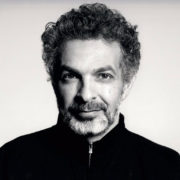BusinessDNA 9th Edition, Page 28
Contributed by Asian Development Bank
Project Capacity: 15 MW
Total Project Cost: 18.89$ million
ADB Loan amount: 7.85$ million
Afghanistan is a founding member of the Asian Development Bank (ADB). Following a hiatus in operations in Afghanistan from 1980 to 2001, ADB — in collaboration with other development partners — resumed its support for Afghanistan’s national development strategies and priority programs to establish a stronger foundation for sustainable economic growth and poverty reduction.
ADB’s total committed assistance to Afghanistan between 1966 and 2019 is $4.9 billion by way of grants, $967.1 million in loans, and $107.1 million of technical assistance.
Expanding the availability of clean renewable energy will be key to Afghanistan’s future economic growth. Afghanistan’s prolonged history of conflict and instability has constrained economic and social development. The Government of Afghanistan and international donors are focused on expanding the availability of energy resources, among other initiatives, throughout the country. However, the country faces significant energy challenges. Afghanistan is not an energy self-sufficient country. It imports roughly 85% of its power from neighboring countries and this excessive dependence has immense implications for a country that has scarce foreign exchange reserves. The renewable energy industry in Afghanistan is in its infancy but presents an opportunity for the country to slowly reduce its energy import bill. Its renewable energy potential is estimated to be over 300,000 MW, including potential for solar power generation of 220,000 MW.
To harness this vast untapped potential, Afghanistan’s Ministry of Energy and Water initiated several initiatives to increase investment in the country’s renewable energy industry through private sector participation. The ministry invited proposals from eligible parties in March 2016 to design, build, finance, own, and operate a 30-MW solar generation facility to be installed either as a single project of 30 MW or in multiples of 5 MW. Da Afghanistan Breshna Sherkat (DABS), the state-owned integrated power utility and the sole purchaser of electricity in Afghanistan, selected 77 Construction, Contracting and Trading Group (77 Group) from among the bidders to develop a 15-MW solar power project. The 77 Group is a leading civil works contracting company which has had an extensive presence in Afghanistan since 2009 and has undertaken several construction related projects in the country.
Attracting private sector financing in Fragile and Conflict Affected Situation (FCAS) counties such as Afghanistan is always challenging. Lack of long-tenor funding, prohibitive pricing and the absence of international banks, along with political, security and regulatory uncertainties, are some of the bottlenecks that hamper private sector investment.
The private sector financing arm of ADB was instrumental in addressing these constraints and played a leading role in financing the Kandahar Solar Power Project. The team worked extensively with 77 Group and other stakeholders to develop best-in-class legal and project documentation that is commercially bankable.
The plant achieved commercial operations in May 2019, making it the country’s first utility-scale grid connected solar power plant financed by the private sector. It represents a meaningful stride towards making the country energy sufficient. The project represents ADB’s first loan to a power project in an FCAS country. It is also the only project to-date that was competitively bid out by the Ministry of Energy and Water and financed by an international development institution.
The project’s success is expected to not only demonstrate that renewable energy projects in Afghanistan are viable investment opportunities but also help catalyze private sector funding for future renewable energy projects. It has provided meaningful livelihoods and economic prosperity to several families during construction and will continue to do so during its operations. The project created jobs for 64 Afghan nationals during construction by employing low, semi and high skilled workers. Also, 12 Afghan nationals are employed during the operations phase. Three other power projects – in various – and some, early stages of development are being considered by ADB for financial support. These include:
- Bayat Power (40MW), in which ADB is in preliminary discussions.
- Mazar Gas Fired IPP (58.65MW), which was approved by ADB in Feb 2020.
- Herat Wind (25MW), ADB is currently appraising the project and has been mandated by the sponsor to raise debt.
Check out BusinessDNA 9th Edition for more exciting stories.






